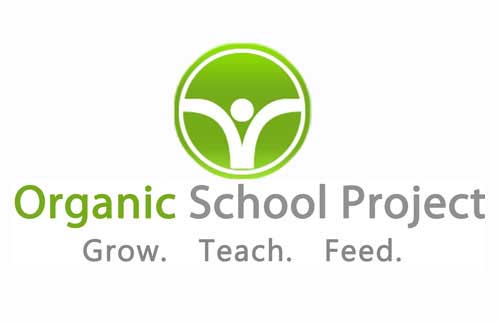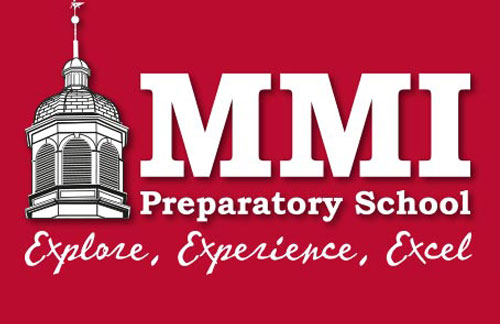
Client Stories
Beginning in Fall 2015, Beyond Green Partners worked with Westminster Community Charter School, an award winning K-8 Charter School in Buffalo, NY, to build a sustainable food program that resonated throughout the community. The end result was a sustainable school community where students gained knowledge about wholesome foods in the school dining room and classroom. Students, staff, and families participated in food, nutrition, and sustainability education together. In one year, Beyond Green Partners helped reduce average food cost by 15% and diverted waste from landfills by over 75%. In 2016, 60% of breakfast, 80% of afternoon snacks, and 100% of lunches were scratch cooked.
“When the kids see that you really do care about what you are feeding them, they start to care too. They see that you care about recycling, that you really care about gardening, and fresh food, and eating healthy, they’ll start to care.“
– Nicole Callahan, Parent and Guest Chef
Nardin Academy
Beyond Green is working with Nardin Academy, an independent school in Buffalo, New York with three units: Montessori, elementary, and high school. Starting in the 2013-2014 school year, the school will manage their lunch programs internally to better align their foodservice with their wellness, community, and environmental goals. They found that investing in new kitchen equipment would not have a significant impact on the quality of food. Instead, they focused on hiring an inspired staff, creating a student-approved menu, costing nutritious food options, and bridging valuable community partnerships.
“Working with BG to assess current operations led Nardin Academy to look comprehensively at our ecological footprint. The decision to go “self-op” impacted far more than the now scratch-cook foodservice. Taking our Sustainable Nardin program into classrooms, having the students participate in waste and energy management, measurement and decisions, has highlighted the importance of many issues facing our students’ futures. The students can appreciate and comprehend the global impact of the decisions that they make daily and translate them into action that impacts the future of the planet; that is amazing.”
– Leslie Johnson, VP Finance and Operations, Nardin Academy
Niles School District 219

Beyond Green began working with Niles School District 219 in 2010. The project started with the building of a 5-year sustainability strategy including local, organic, hormone free food procurement. As well as waste reduction and energy and water reduction by eliminating disposables, implementing composting and eliminating inefficiencies in the kitchens. After the strategy was accepted, Greg and Beyond Green acted as third-party monitors, reporting back to the district administrators about the successes and failures discovered in the implementation of the new strategy. In the second year, Beyond Green’s work expanded beyond the kitchens to include student engagement initiatives designed to build support for the new programs around and outside the school. Athletes, clubs, classes, newspapers, teachers, students and administrators have all been included to increase the impact of our strategy by promoting its initiatives and collaborating with all of the stakeholders to bring each community member’s unique skills and contributions to help the programs succeed.
“We had many ideas about sustainability which were floating around in the ethers. Greg immediately understood our ideas and translated them quickly into a document that was specific, realistic and timely.”
– Paul O’Malley, Business Manager, Niles Township High School District 219
Lincoln Land Community College
Beyond Green is working with Lincoln Land Community College in Springfield, IL as part of a consortium of 17 state community colleges, to design Value Added Local Foods curriculum. The value-added local foods program contributes to a healthy local food system that benefits everyone by increasing the diversity and availability of local sustainable food products and resources while reducing waste. A value added local food product is something grown or raised by a farmer and then increased in value through labor and creativity. It can come from any step in the production process that results in a higher net worth for the farmer and increases local food options for consumers and the community they support.
“Greg Christian and his Beyond Green team literally saved my value-added local food program. The specialized knowledge needed to create cutting-edge curriculum was almost impossible to find, but Beyond Green was able to pull together an experienced team to provide me with quality, creative, and inspiring courses. They have worked efficiently and all hours of the day to meet tight deadlines. They are fun, easy, and professional, and I am grateful to be working with them.”
– Marnie Record, Workforce Specialist, Lincoln Land Community College
Field Museum

Beyond Green assisted the Field Museum in creating a ten-year environmental strategy for their foodservice operations. The strategy was designed to help the Field Museum foodservice operations to reduce waste, improve the quality of their foods and other products, increase awareness and education on healthy living, engaging the community, and finally improving energy, water, and air quality. Now Greg is working with Aramark and the Field Museum to implement the policies and procedures outlined in the strategy, while also working as a third-party monitor to measure and track the success of the project.
“This sustainability strategy reflects the Field Museum’s DNA. It is vital you hear your institution’s voice in your own program. Greg listened, guided and finely tuned a program that is ours and ours alone. No two institutions should have the exact same strategy. Greg digs deep to find out what is important, what will work, what won’t. The DNA may be similar, but it isn’t the same. It would be easy to use someone else’s strategy, but ultimately it would fail. It wouldn’t be authentic.”
– Megan Beckert, Director of Special Events, Food Operations, Tourism and Group Sales, Chicago’s Field Museum
Organic School Project
Greg Christian founded Organic School Project in 2002 to address the need for a better food system in schools. The nonprofit organization was designed to prevent obesity through its Grow. Teach. Feed curriculum. In the ‘Grow’ process, OSP reconnects children to their food sources through community-school gardens. In the Teach process, OSP teaches children nutrition, mindfulness, and environmental stewardship through integrated curriculum components. And in the ‘Feed’ process, OSP feeds More Positive Foods™ in the school food service system. The program was implemented in public schools in Chicago.

MMI Preparatory School

“Greg and his Beyond Green team were an invaluable asset as we converted our school lunch program from a concession program to one with healthy, scratched cooked food. Throughout the transition, the Beyond Green team was focused on our goals for the program while working with us to ensure we considered everything required for a smooth transition and successful program. Greg personally worked with our chef on menus, which excited our students. Through their support, we now have a well-run, bankable food service program that our students enjoy and our parents are proud of.
– Thomas G. Hood, Head of School, MMI Preparatory School
